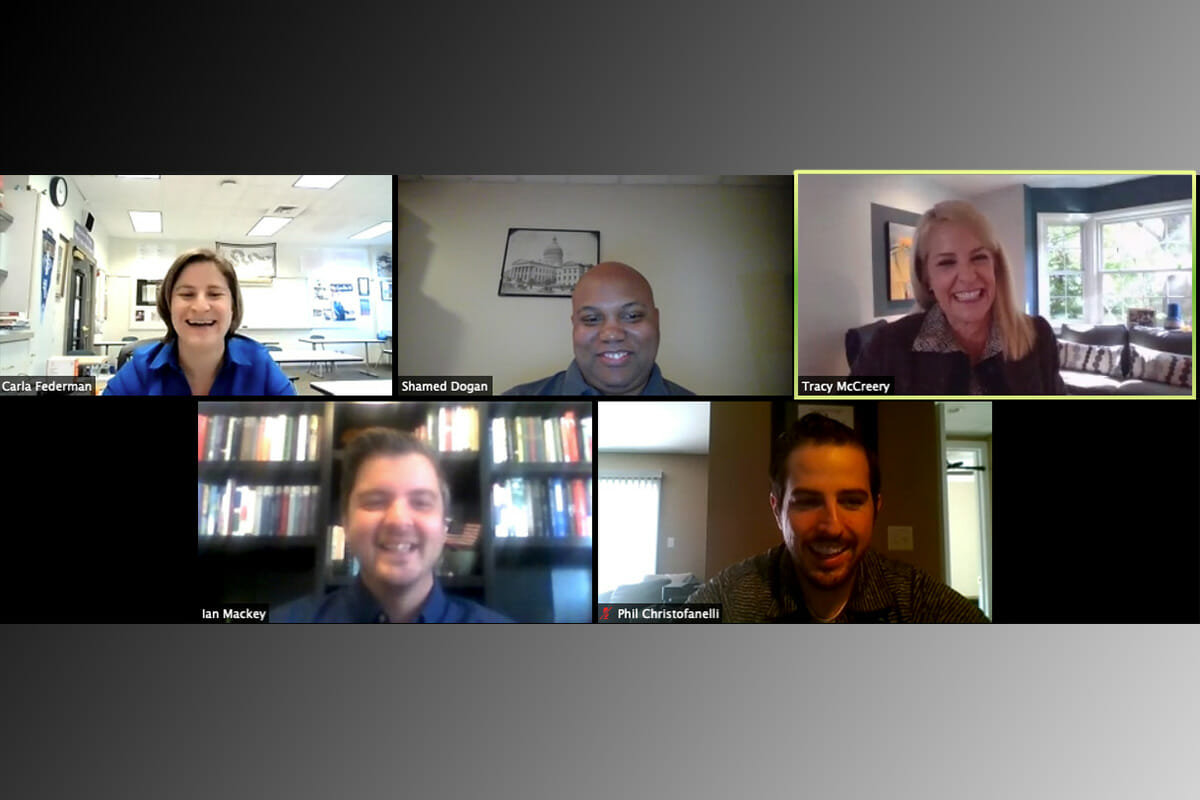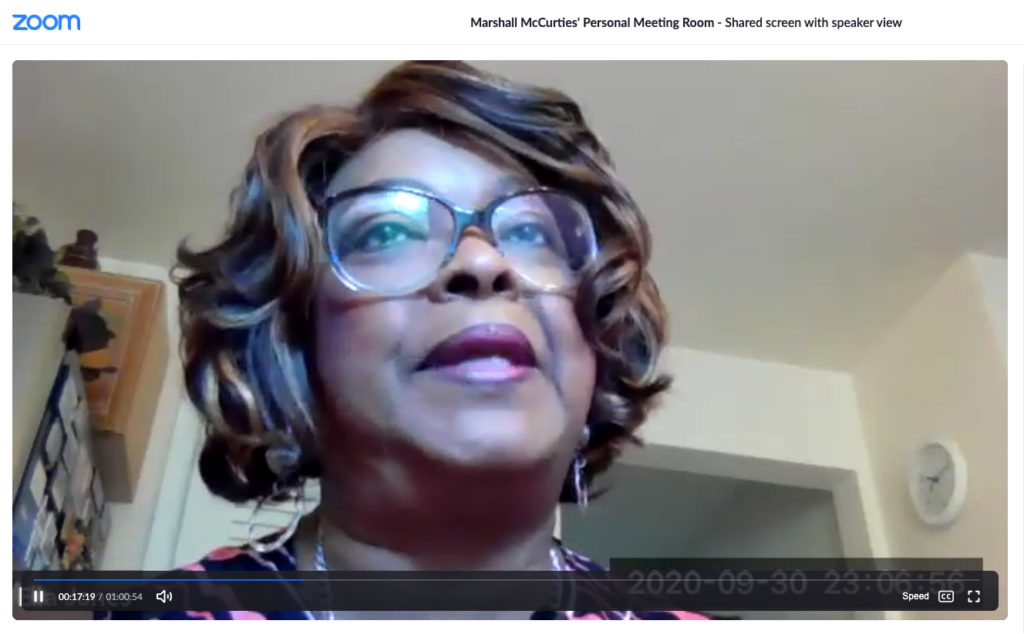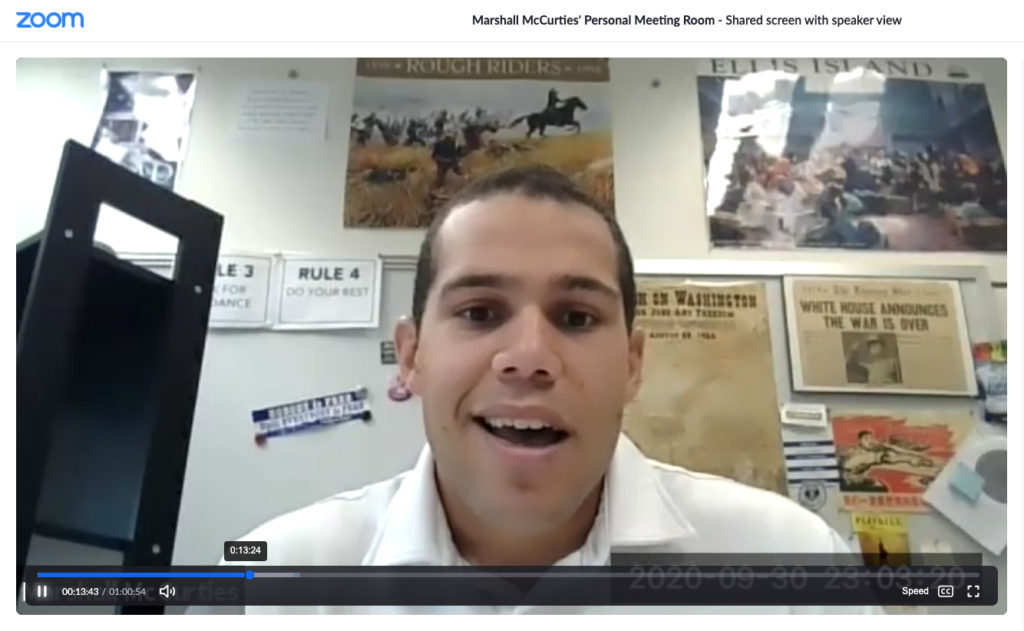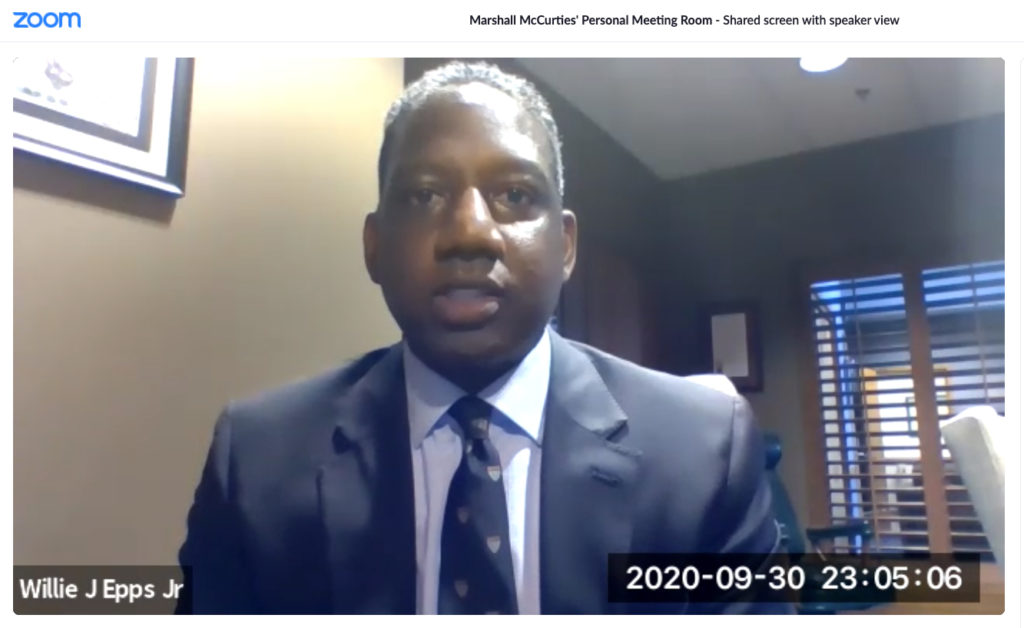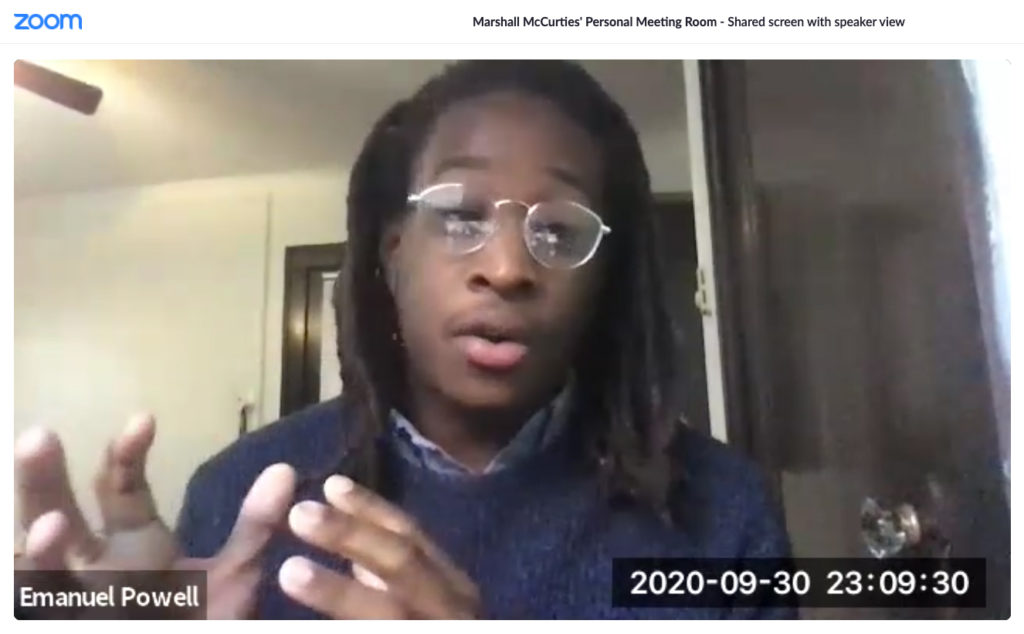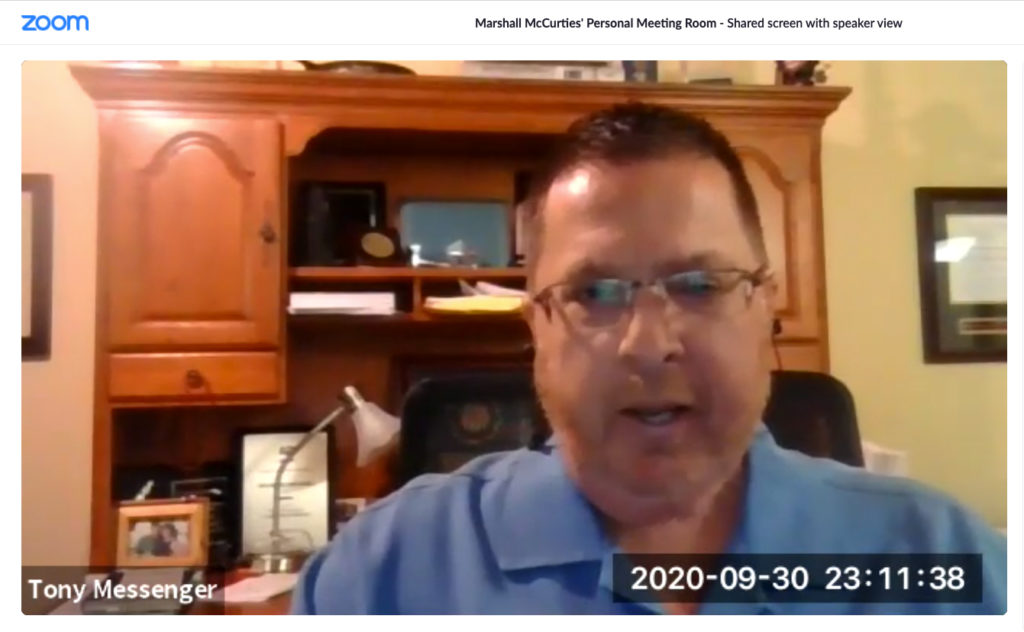Juniors in our History of St. Louis class had the unique opportunity of learning from two different political panels this week. One panel brought together four local state representatives while the other gathered four local executive and legal experts. On the heels of the first presidential debate, politics have certainly been a topic of conversation for many this week, and these discussions over Zoom with these all-star leaders helped give students more perspective on politics at the local and state levels.
The State Representatives Panel, moderated by JK – 12 History & Social Sciences Dept. Chair Carla Federman, included the following four members of the Missouri House of Representatives:
- Representative Phil Christofanelli (Republican, District 105)
- Representative and MICDS Alum Shamed Dogan ’96 (Republican, District 98)
-
Representative Ian Mackey (Democrat, District 87)
-
Representative Tracy McCreery (Democrat, District 88)
After introducing themselves, sharing their backgrounds on how they got into politics, and describing which districts they oversee, the panelists covered three main questions from students. First, they were asked about what each thought of as the biggest political issues in the state legislature. Representatives talked about such things as educational reform, implementing online sales tax, and the state’s lack of growth. Regarding the need for growth, Representatives Dogan and Mackey said that changes start at the individual level with embracing diversity (of race, religion, creed, sexual orientation, thoughts), being more forward-thinking, welcoming the technology and energy industries, and making changes as individuals. “We need to create a culture that is welcoming and a place where people want to be,” shared Representative Mackey. “More than policies is how we talk to and treat each other.”
A recurring message from all of the speakers was highlighted in the second question where each shared specific examples about issues where they reached across the aisle working with the other party to pass a bill or accomplish something. The representatives gave examples of improving disciplinary practices in schools, banning the practice of shackling incarcerated women who are pregnant, correcting outdated and discriminatory HIV statutes, and criminal justice and police reform. “This is the best job I’ve had,” expressed Representative Dogan. “People do this to serve their communities. We work across the aisle every time.” Representative McCreery echoed this sentiment in a tweet after the panel discussion. It was great for students to hear all about respectful, productive, and positive bipartisanship.
Finally, the state representatives gave advice to students whether students wanted to get involved in politics or were perhaps disheartened by them. Representative McCreery shared, “Realize you don’t have to run for office to make a difference in the world. There are many ways you can help. Do some self-reflection, figure out what you care about…”
“Government is run by the people who show up and it’s never too early to show up,” stated Representative Christofanelli.
The second panel included four executive and legal experts and was moderated by Marshall McCurties, Upper School Social Studies Teacher. The panel included:
- Tony Messenger, a national columnist with the St. Louis Post-Dispatch
- Emanuel Powell, a staff attorney with Arch City Defenders
- Willie Epps Jr. ’88, a United States Magistrate Judge on the 8th Circuit
- Ella Jones, Mayor of Ferguson, Missouri
McCurties introduced the panelists and launched the discussion by asking them to comment on what they see as the most pressing political issue for St. Louis. Voting and participating in the census was encouraged, since elected officials impact so many of the issues in our country and the census helps determine how resources are allocated. Several of the panelists also mentioned racial inequality as a driving issue. Epps explained that in his role as a magistrate judge, it would be inappropriate for him to comment on political issues.
The panel then shared how politics plays a role in each of their very different jobs. Powell spoke about how, as a civil rights attorney, he’s very much aware of the political pressures inherent in creating and enforcing laws, and how laws passed in the 1800s continue to impact the work he does today. Epps told the students, “You’re about to see how politics impact my world,” in regard to the upcoming confirmation hearings for a new Supreme Court justice. He spoke about how humbling it is to be a judge, and how beyond the confirmation process, in the real work of the courts, judges follow the law based on precedent, not on individual opinions. “When journalists write, they talk about us being ‘Obama judges’ or ‘Trump judges,’ but we do not see ourselves that way,” he said. “I assure you that every single day there are hundreds of men and women like me who try to follow the law by precedent, not based on what we think. That would be chaos. Our system of law is built on precedent established over decades.”
Messenger also talked about how journalists typically do not participate in partisan politics and said that he writes about both the Democratic party and the Republican party. He mentioned that while it’s often a “D versus R” discussion, he’s also written about “D versus D” and “R versus R.” “Politics is what ultimately creates public policy, determines on a federal level who ends up on the Supreme Court and who is appointed to circuit courts, and impacts cases making their way through the court system,” he said.
Finally, McCurties asked the panelists to comment on whether St. Louis is on the rise or on the decline, and to speak about the region’s strengths. Jones said that recovering from the coronavirus pandemic and keeping people safe and healthy is the most important thing for St. Louis City and County to focus on, which will lead to an economic recovery. All the panelists agreed that while our region struggles with a variety of issues, there are very good people collaborating and working hard to make our community better for everyone. They are optimistic about the future of St. Louis and its citizens.
Thank you so much to all of our panelists for the work you do and for taking the time out of a busy week in politics to speak to our MICDS juniors!
